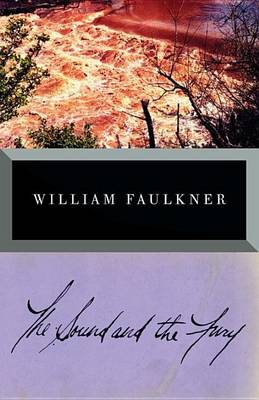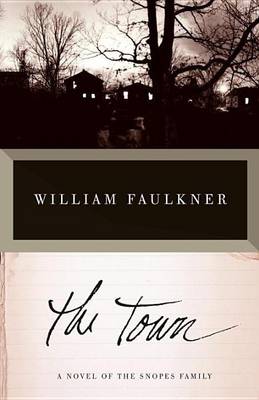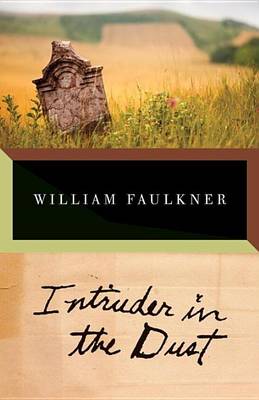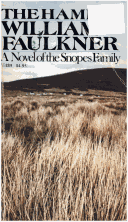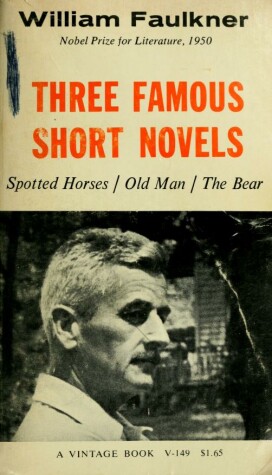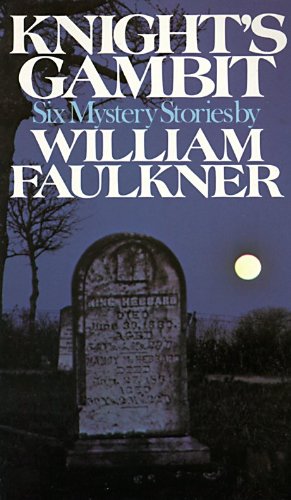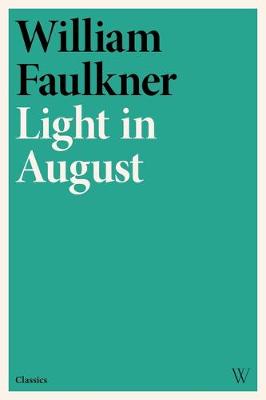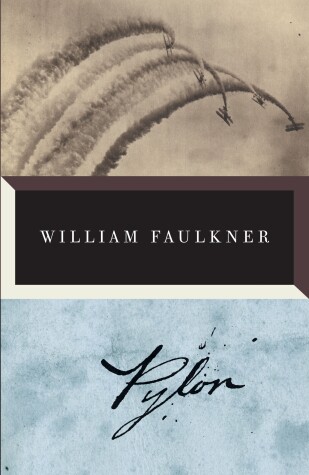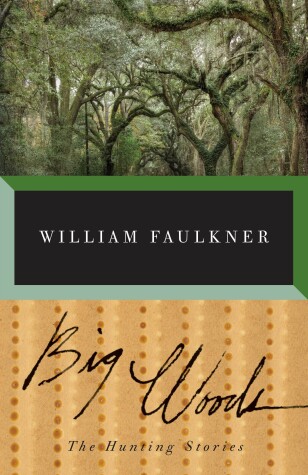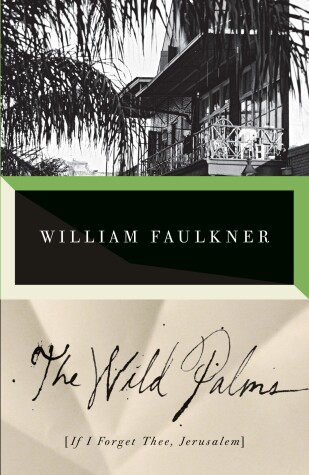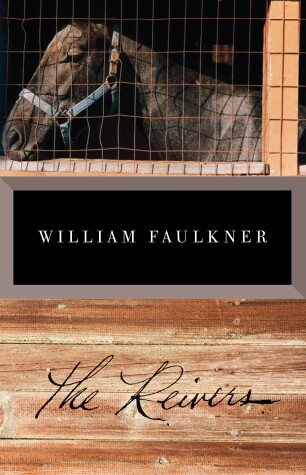Vintage International
22 total works
This is the second volume of Faulkner’s trilogy about the Snopes family, his symbol for the grasping, destructive element in the post-bellum South. Like its predecessor, The Hamlet, and its successor, The Mansion, The Town is completely self-contained, but it gains resonance from being read with the other two....
Read moreThis is the second volume of Faulkner’s trilogy about the Snopes family, his symbol for the grasping, destructive element in the post-bellum South. Like its predecessor, The Hamlet, and its successor, The Mansion, The Town is completely self-contained, but it gains resonance from being read with the other two. The story of Flem Snopes’s ruthless struggle to take over the town of Jefferson, Mississippi, the book is rich in typically Faulknerian episodes of humor and profundity.
“I set out deliberately to write a tour-de-force. Before I ever put pen to paper and set down the first word I knew what the last word would be and almost where the last period would fall.” —William Faulkner on As I Lay Dying
As I Lay Dying is Faulkner’s...
“I set out deliberately to write a tour-de-force. Before I ever put pen to paper and set down the first word I knew what the last word would be and almost where the last period would fall.” —William Faulkner on As I Lay Dying
As I Lay Dying is Faulkner’s harrowing account of the Bundren family’s odyssey across the Mississippi countryside to bury Addie, their wife and mother. Narrated in turn by each of the family members—including Addie herself—as well as others the novel ranges in mood, from dark comedy to the deepest pathos. Considered one of the most influential novels in American fiction in structure, style, and drama, As I Lay Dying is a true 20th-century classic.
This edition reproduces the corrected text of As I Lay Dying as established in 1985 by Noel Polk.
'The past is never dead. It's not even past.'
Nancy, a black nursemaid, is about to be hanged for killing her mistress's baby. The mother, Temple Drake, knows the reason why. The night before the execution, a lawyer pleads with Temple to intercede, but will the past allow for justice...
Read more'The past is never dead. It's not even past.'
Nancy, a black nursemaid, is about to be hanged for killing her mistress's baby. The mother, Temple Drake, knows the reason why. The night before the execution, a lawyer pleads with Temple to intercede, but will the past allow for justice or absolution in the present? Switching between narrative prose and play script, this is Faulkner's haunting sequel to his earlier bestseller, Sanctuary.
“Read, read, read. Read everything—trash, classics, good and bad, and see how they do it. Just like a carpenter who works as an apprentice and studies the master. Read! You’ll absorb it. Then write. If it is good, you’ll find out. If it’s not, throw it out the window.”...
Read more“Read, read, read. Read everything—trash, classics, good and bad, and see how they do it. Just like a carpenter who works as an apprentice and studies the master. Read! You’ll absorb it. Then write. If it is good, you’ll find out. If it’s not, throw it out the window.” —William Faulkner
Absalom, Absalom! is Faulkner’s epic tale of Thomas Sutpen, an enigmatic stranger who comes to Jefferson, Mississippi, in the early 1830s to wrest his mansion out of the muddy bottoms of the north Mississippi wilderness. He was a man, Faulkner said, “who wanted sons and the sons destroyed him.”
These short works offer three different approaches to Faulkner, each representative of his work as a whole. Spotted Horses is a hilarious account of a horse auction, and pits the...Read more
These short works offer three different approaches to Faulkner, each representative of his work as a whole. Spotted Horses is a hilarious account of a horse auction, and pits the “cold practicality” of women against the boyish folly of men. Old Man is something of an adventure story. When a flood ravages the countryside of the lower Mississippi, a convict finds himself adrift with a pregnant woman. And The Bear, perhaps his best known shorter work, is the story of a boy’s coming to terms wit the adult world. By learning how to hunt, the boy is taught the real meaning of pride, humility, and courage.
This novel won both the Pulitzer Prize and the National Book Award in 1955. An allegorical story of World War I, set in the trenches in France and dealing ostensibly with a mutiny in a French regiment, it was originally considered a sharp departure for Faulkner. Recently it has...
Read moreThis novel won both the Pulitzer Prize and the National Book Award in 1955. An allegorical story of World War I, set in the trenches in France and dealing ostensibly with a mutiny in a French regiment, it was originally considered a sharp departure for Faulkner. Recently it has come to be recognized as one of his major works and an essential part of the Faulkner oeuvre. His descriptions of the war "rise to magnificence," according to The New York Times, and include, in Malcolm Cowley's words, "some of the most powerful scenes he ever conceived."
Gavin Stevens, the wise and forbearing student of crime and of the folk ways of Yoknapatawpha County, Mississippi, plays the major role in these six stories of violence. In each, Stevens’sharp insights and ingenious detection uncover the underlying motives.
“I believe that man will not merely endure: he will prevail. He is immortal, not because he alone among creatures has an inexhaustible voice, but because he has a soul, a spirit capable of compassion and sacrifice and endurance.” —William Faulkner, on receiving the Nobel Prize
Go Down, Moses is...
“I believe that man will not merely endure: he will prevail. He is immortal, not because he alone among creatures has an inexhaustible voice, but because he has a soul, a spirit capable of compassion and sacrifice and endurance.” —William Faulkner, on receiving the Nobel Prize
Go Down, Moses is composed of seven interrelated stories, all of them set in Faulkner’s mythic Yoknapatawpha County. From a variety of perspectives, Faulkner examines the complex, changing relationships between blacks and whites, between man and nature, weaving a cohesive novel rich in implication and insight.
“Read, read, read. Read everything—trash, classics, good and bad, and see how they do it. Just like a carpenter who works as an apprentice and studies the master. Read! You’ll absorb it. Then write. If it is good, you’ll find out. If it’s not, throw it out the window.”...
Read more“Read, read, read. Read everything—trash, classics, good and bad, and see how they do it. Just like a carpenter who works as an apprentice and studies the master. Read! You’ll absorb it. Then write. If it is good, you’ll find out. If it’s not, throw it out the window.” —William Faulkner
Light in August, a novel about hopeful perseverance in the face of mortality, features some of Faulkner’s most memorable characters: guileless, dauntless Lena Grove, in search of the father of her unborn child; Reverend Gail Hightower, who is plagued by visions of Confederate horsemen; and Joe Christmas, a desperate, enigmatic drifter consumed by his mixed ancestry.
